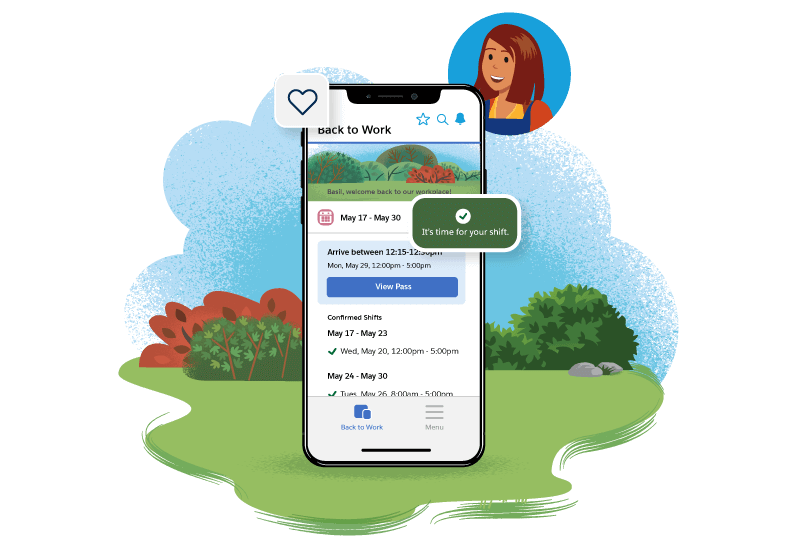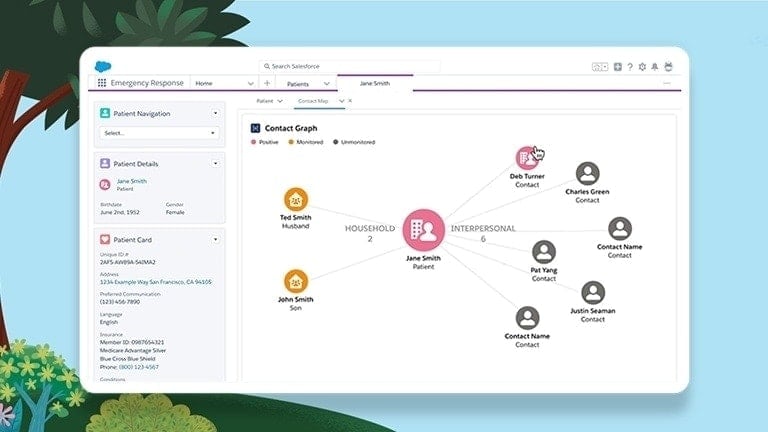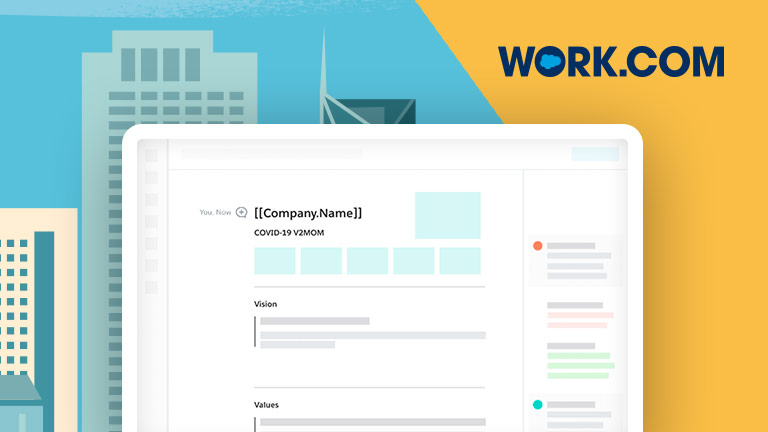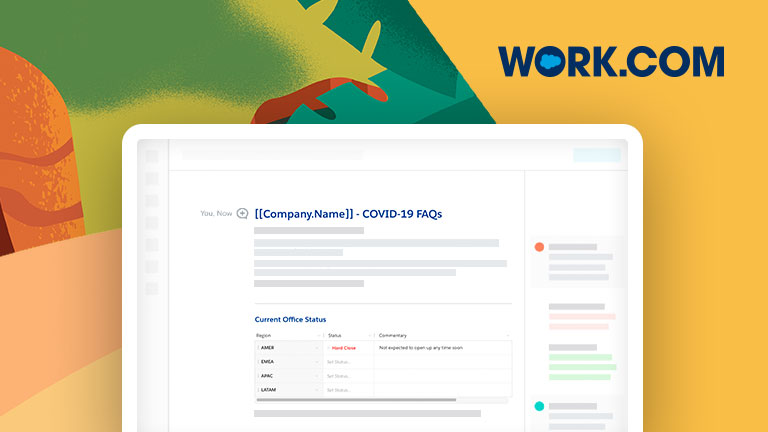The New Retail Playbook
In the blink of an eye, the retail industry changed. The majority of retailers closed their doors to adhere to shelter-in-place orders. Big box and grocery retailers barely kept up with demand while non-essential retailers were left with excess inventory. Digital shopping surged.
As restrictions lift, you may have already reopened your doors or are planning to do so. Regardless of where you are on your journey, this playbook will help you adapt today and prepare for future unexpected events while building a new level of confidence with shoppers.
Chapter 1: Ensure safety at your store

In this section, learn what else you can do to ensure everybody feels safe and secure at your stores.
Keep everyone safe during the reopen process
Salesforce created Work.com to provide advisory services and technology solutions to help companies stabilize and reopen safely. The Workplace Command Center is a single hub to make informed decisions on how to monitor, adjust, and manage reopening based on public and private data. Track return-to-work readiness with the Employee Wellness Check. Customise and deploy surveys based on the Centers for Disease Control and Prevention (CDC) guidelines and organisational needs.
With visibility into wellness data by geography, store location, and employee health status, you can make more informed decisions. This includes optimising employee scheduling with the Shift Management capability. The dashboard provides visibility to determine capacity, plan, and ensure compliance. At the same time, employees have control over their availability, so managers can stagger and schedule shifts based on availability and wellness.

Require PPE at your stores
According to the Salesforce Snapshot Research Survey, conducted May 1-15, 2020, 54% of people say they would personally require PPE for employees and 45% would require it for customers in order to return to normal in-store shopping behaviours. Give store employees high-quality face masks and gloves. Clearly communicate — and enforce — that PPE is required to enter the store. Have back-up supplies on hand for anyone who needs it.
Learn more about how to source PPE on Trailhead, our free digital learning platform with customisable trails.

Track employee health-related interactions
Be meticulous about cleaning
Create your health and saftey requirements checklist with our free template.
Enforce capacity limits
Rethink store layouts for social distancing
Sixty-two percent of people say they would personally require social distancing measures to be in place prior to returning to a store. Rethink your store layout to adhere to social distancing.
Minimise the chance of people gathering by reducing the amount of displays and overall merchandise on the floor. Add floor markers and signage to help shoppers maintain social distancing. Construct physical barriers to protect store staff as well — sneeze guards or partitions, for example — especially in areas where people tend to gather, such as the checkout counter.
Chapters

Tools to Help You Reopen Your Business

COVID-19 Response Playbook
More Resources

Write a COVID-19 V2MOM

How to Source Personal Protective Equipment (PPE)


.png)

